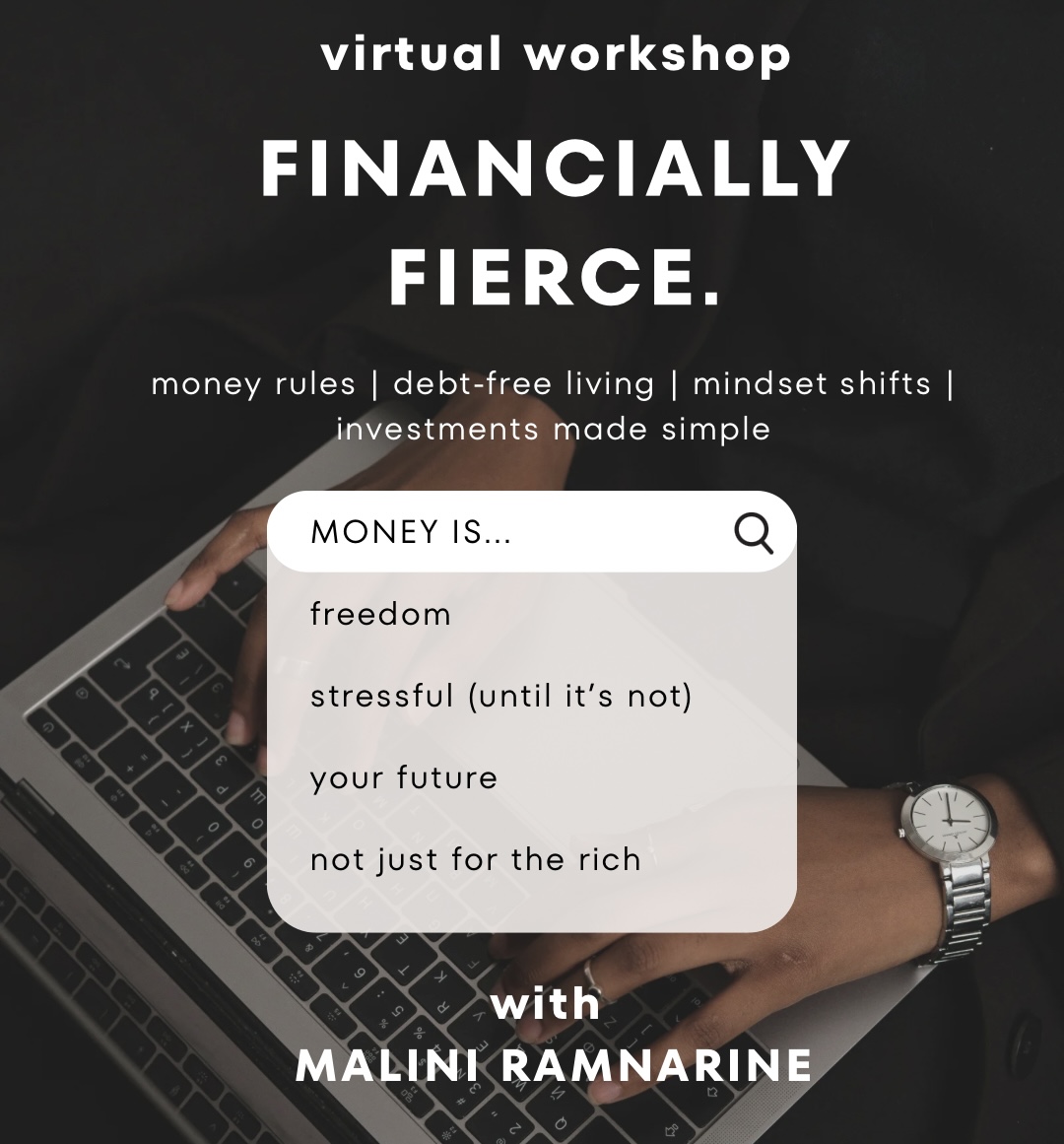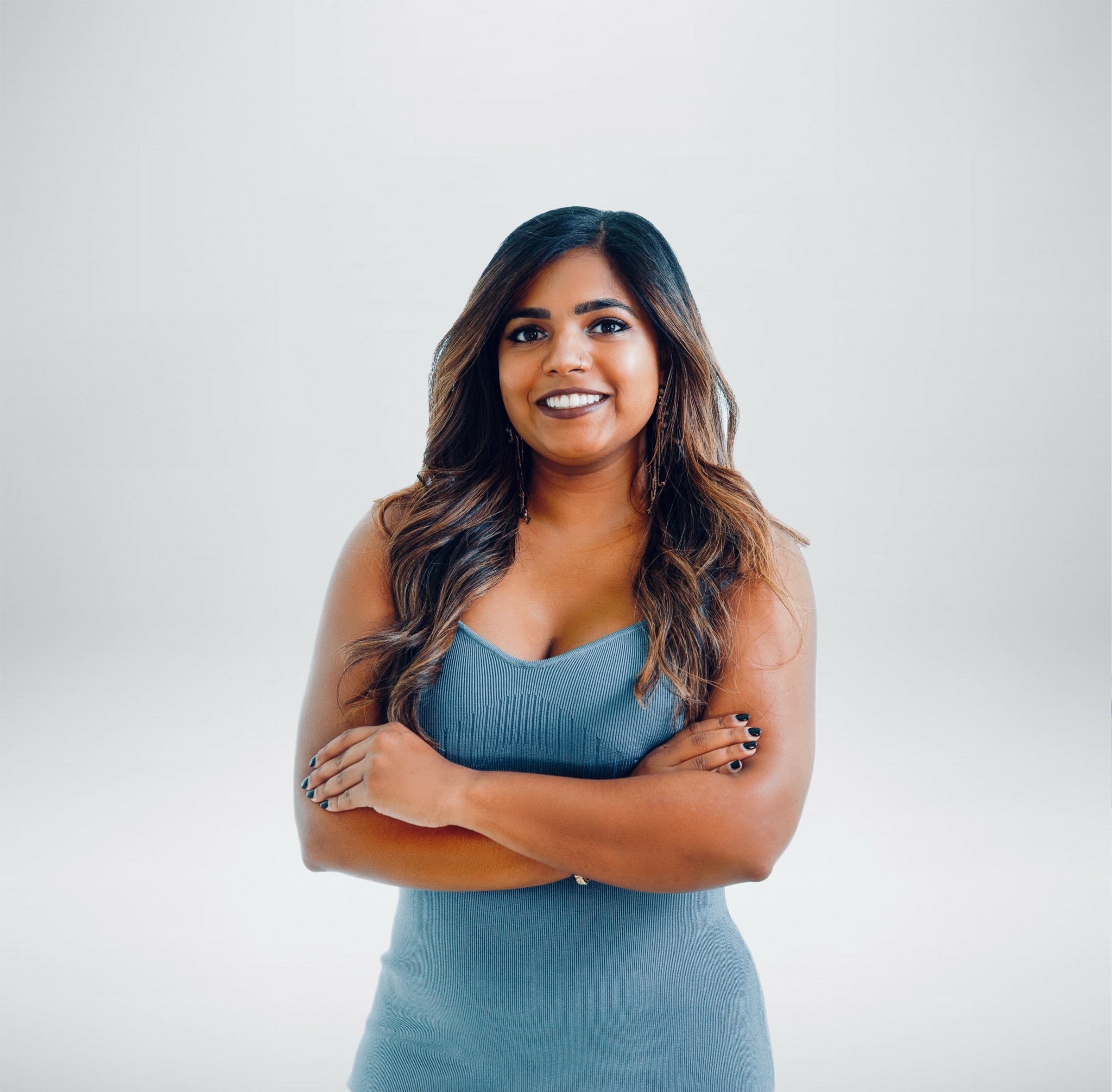We recently connected with Malini and have shared our conversation below.
Malini, thanks for joining us, excited to have you contributing your stories and insights. Setting up an independent practice is a daunting endeavor. Can you talk to us about what it was like for you – what were some of the main steps, challenges, etc.
I was about five or six years into my corporate finance career when something in me started to feel hollow. I had achieved what many would call success, stability, a clear ladder to climb, and a steady paycheck, but I was constantly surrounded by stress. Everything was always urgent. No one seemed truly fulfilled. Then, I took my first international trip to Belize and Mexico. That trip shifted everything. I saw people living with less pressure and more presence. I realized I didn’t want to be confined to an office or defined by deadlines anymore.
That moment planted a seed. I began to ask: What would life look like if I could choose how I spent my time? Who I worked with? What if success wasn’t about climbing a ladder, but creating something of my own?
Eventually, I found the answer in mental health. I decided to go back to school to pursue a Master’s in Marriage and Family Therapy. But this wasn’t a gentle transition. I worked full time in corporate finance while attending graduate school full time. It was a few years of non-stop work, long nights, and very little breathing room. That pace eventually caught up to me.
At the beginning of 2025, I hit a wall. What I first brushed off as burnout quickly began to mirror symptoms of depression: I lost pleasure in things I usually loved, felt a persistent fatigue and low mood, and began struggling with executive functioning, organizing my day, remembering tasks, even completing basic responsibilities. It was a wake-up call that I couldn’t keep operating this way.
Shortly after becoming licensed to practice as a Marriage Therapist, I was working in community mental health and found myself right back where I swore I’d never return—overwhelmed, exhausted, and undervalued. I knew I couldn’t sustain that path anymore, so I made the leap into private practice. This time, not with idealism, but with intention. I wanted to build something sustainable, rooted in the values I’d been neglecting: freedom, integrity, cultural relevance, and emotional spaciousness.
Today, I run a completely virtual solo practice where I work primarily with South Asian and Indian Caribbean clients, helping them navigate identity, relationships, and healing from generational and cultural pressures. As a woman of Indian Caribbean descent myself, this niche came naturally. I’ve lived through many of the same expectations my clients carry: to be high-achieving, emotionally self-contained, and always in service of others regardless of the cost.
Journaling has been one of the most consistent tools in my healing process. Over the last 15 years, I’ve filled pages processing identity, burnout, and the quiet pressure to always have it together. Those reflections, blended with personal stories and my clinical work, are now taking shape in a book called False Independence, set to be released by Spring 2026. It’s rooted in the idea that what we often glorify as “independence” is actually isolation in disguise. Many of us, especially in immigrant communities, were taught that needing help is weakness. But I believe the opposite is true: we need community to thrive. That message, both in my book and in my therapy work, is something I hope help others feel less alone.
Alongside my therapy practice, I also have a separate role in the financial services industry. It’s distinct from my clinical work, but connected by a throughline: many people carry deep anxiety and shame around money. In particular, South Asian and immigrant communities often internalize the belief that financial success equates to personal worth. That crossover helps me support my clients not only emotionally, but with a grounded understanding of how money stress intersects with mental health.
Starting my practice wasn’t easy. Being a solo practitioner means wearing every hat: therapist, admin, scheduler, tech support, marketer, and accountant. It took time to realize that running a practice is not just about helping people—it’s also about managing a business. One of the biggest hurdles was understanding the financial side of private practice. As a self-employed clinician, you don’t get PTO or benefits. Tax rules are different. Health insurance is entirely on you. These are not minor things. They shape your entire lifestyle and require careful planning.
If I could do anything differently, I would’ve started networking much earlier. I assumed I had to be fully licensed before showing up in professional spaces, but that’s simply not true. Building relationships, connecting with other providers, and getting involved in the community should start as early as possible. Your referral network, reputation, and visibility take time to grow.
I also would have sought mentorship and coaching around the business side of therapy. No one teaches you how to write a business plan, price your services, market ethically, or navigate the logistics of telehealth. I learned most of it the hard way.
And one thing that absolutely no one talks about: have a financial cushion. There’s a lot of glorification around quitting jobs you hate to “follow your dreams,” but the truth is, it’s not feasible without some financial safety net. The only reason I was able to transition into mental health (knowing it meant a pay cut from finance) and eventually walk away from my community mental health role was because I had built that cushion. Learn about investing. Get curious about your money. Your future self will thank you.
To any young professional thinking about starting their own practice:
Build your practice around your life, not the other way around. Figure out what kind of space you want to live in emotionally, mentally, and physically—and create a business that supports that. Even if it means staying in your 9-5 for a while while you build your business from 5-9pm.
You don’t have to take the traditional path. If something about your career doesn’t feel aligned, it’s okay to change direction, even if others don’t understand it at first. Whether you’re exploring entrepreneurship because of burnout, passion, or a deep calling, trust that your lived experience is enough to guide you.
You won’t know everything at the start and that’s okay. But if you stay close to your values, the rest can be figured out.
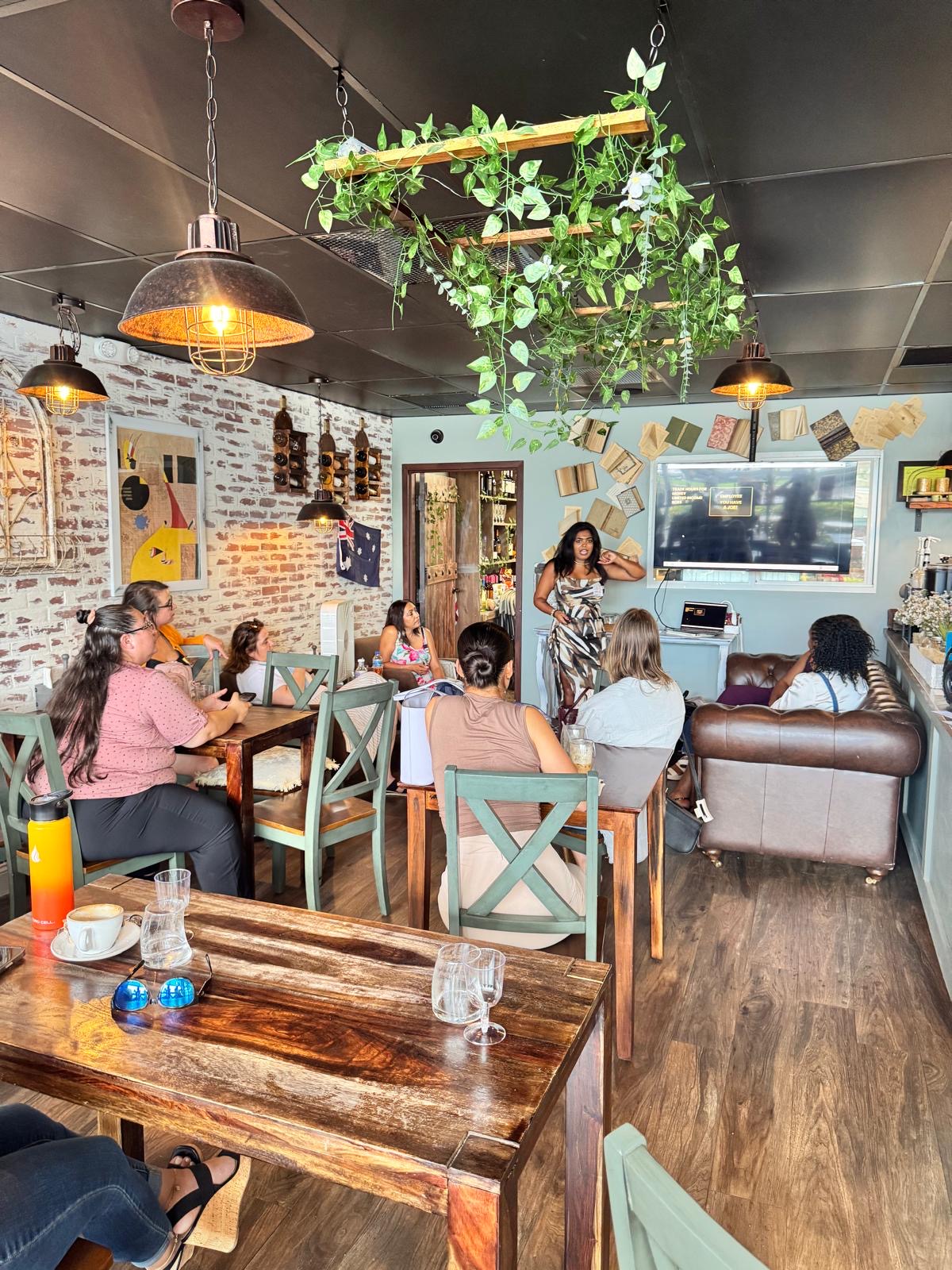
As always, we appreciate you sharing your insights and we’ve got a few more questions for you, but before we get to all of that can you take a minute to introduce yourself and give our readers some of your back background and context?
Hi, I’m Malini E. Ramnarine, a Licensed Marriage and Family Therapist and Licensed Financial Professional. I’m the founder of Moksha Collective, a fully virtual practice named after the Sanskrit word moksha, meaning “liberation” or “freedom.” That’s the heart of everything I do—helping people find emotional, relational, and financial liberation in their lives.
At Moksha Collective, I offer individual, family, and couples therapy rooted in culturally responsive care. I specialize in Accelerated Resolution Therapy (ART), a powerful, rapid approach to trauma that blends elements of EMDR, image rescripting, and relaxation techniques to help clients process heavy experiences without needing to re-tell their stories in detail. My work centers around the BIPOC community, specifically towards the South Asian and Indian Caribbean diaspora, addressing the nuanced intersections of identity, generational trauma, and cultural expectations.
In addition to therapy, I offer coaching programs tailored specifically for the South Asian and Indian communities:
Brown Girl Blueprint (for South Asian women navigating boundaries, identity, independence, and family dynamics)
South Asian Men’s Playbook (for men unlearning emotional suppression, cultural conditioning, and disconnection)
Relationship Reset (for couples navigating “we vs me,” gender roles, communication breakdowns, and cultural clash)
These programs are designed to be as practical as they are personal. No generic advice, just real conversations rooted in cultural truth.
On the financial side, I own my own independent firm where I support clients in building clarity around their goals and money mindset. A lot of what I do is about breaking down money shame, replacing outdated beliefs, and making financial literacy accessible, especially for communities that were taught survival, not strategy.
What problems do I solve?
I help clients navigate the deeply layered pressures of being the “strong one,” the “first one,” or the “only one.” Whether you’re a high-achieving South Asian woman who’s burnt out from being everything to everyone, a couple trying to bridge the gap between cultures, or someone staring down financial anxiety because no one ever taught you how to plan a future, you’re not alone. My role is to help untangle all of that and create space for something new.
What sets me apart?
Honestly? I’m human first, expert second. I bring my lived experience, my sarcasm, and my whole self into the room. I’ve cried in staff bathrooms. I’ve grieved generational pain. I’ve juggled full-time corporate work while getting my master’s and burning out in the process. I’ve sat in the quiet aftermath of family substance use and asked the same hard questions my clients are asking now. So when I say I get it, I really do. I’m not here to give you a five-step formula or throw around generic advice. I show up as a real person who’s done the work and is still doing it. I’ll challenge you when needed, hold space when it’s hard, and bring some humor in when it helps. Healing is rarely linear, but it doesn’t have to be lonely or sanitized.
I built Moksha Collective to be a space where South Asian and Caribbean clients don’t have to translate their experiences or tone themselves down. Where healing actually fits your reality. And where freedom, emotional, relational and financial, feels possible, not abstract.
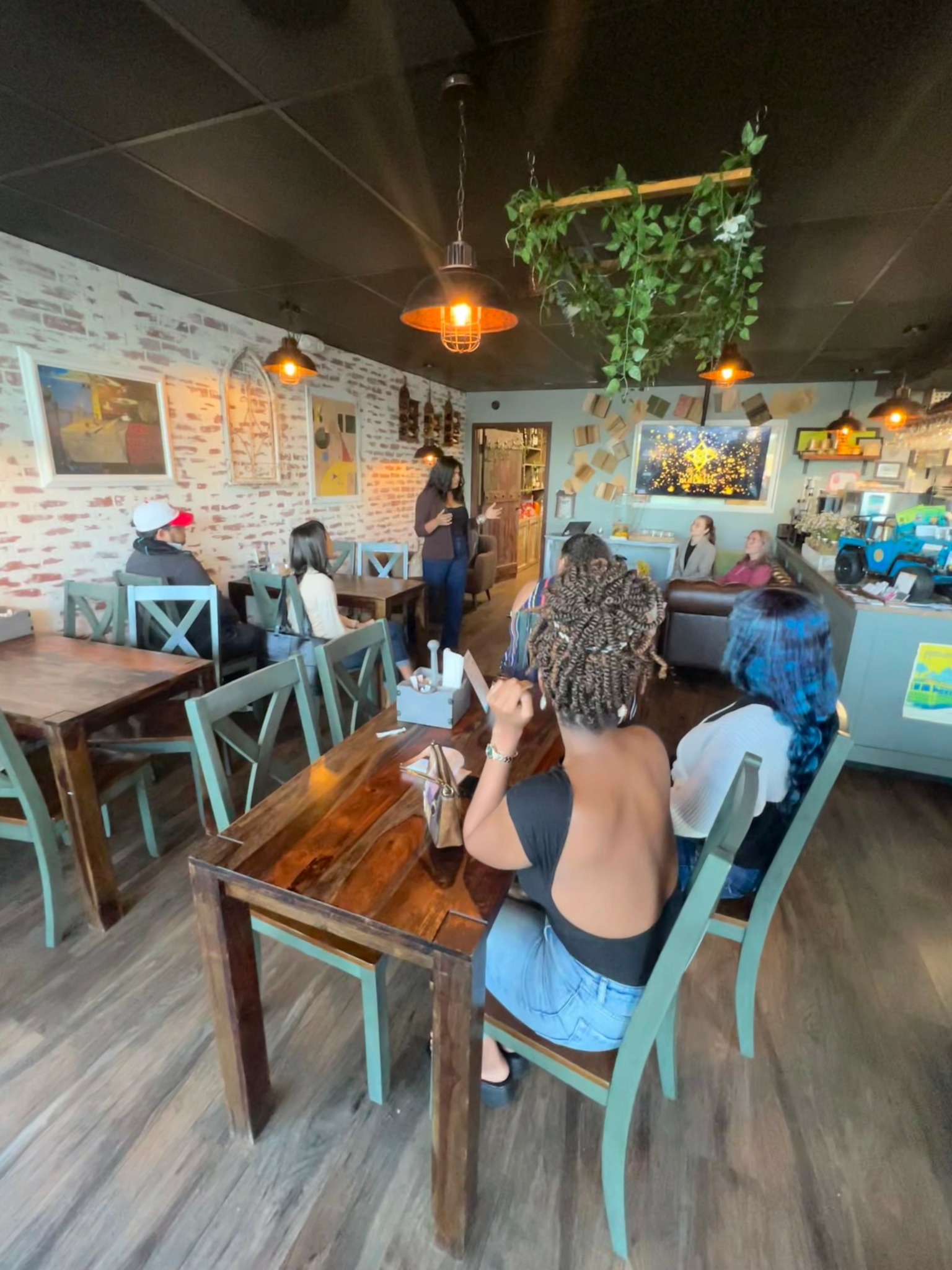
Learning and unlearning are both critical parts of growth – can you share a story of a time when you had to unlearn a lesson?
The thing I had to unlearn was that being in control made me safe and that my worth was tied to how well I performed. Like many children of immigrants, I grew up with a silent pressure to hold it all together. Be the reliable one. Be the high achiever. Be the one who doesn’t mess up. That sense of “holding” and “control” became so automatic that I didn’t even realize I was doing it in places it didn’t belong like a salsa class.
When I first started learning salsa, I had no idea how hard it would be to simply follow. In partner dancing like salsa, one person takes the lead, usually the man, and the other follows, usually the woman. I remember being in class, trying to do everything “right,” and the lead I was dancing with stopped and gently said, “You’re leading. That’s my job.” My immediate reaction was embarrassment but underneath that, I felt exposed. I realized I had no idea how to trust someone else’s rhythm. I was so used to staying one step ahead, predicting everything, managing everything… even on the dance floor.
Later, when I began learning Brazilian Zouk, the lesson deepened. Zouk is all about elasticity and connection between two people. You’re constantly tuning in to your partner’s energy. There’s no “performing” your way through it. You have to be present. You have to feel. And you have to let go.
That’s when it clicked for me: this wasn’t just about dance. This was the same pattern that showed up in relationships, work, and even healing. I was so used to doing that I didn’t know how to receive.
As a trauma-informed therapist, I now help clients navigate that exact edge, especially those from high-pressure or immigrant families. The edge where control meets surrender. Where we begin to let our bodies feel safe without over functioning. And where we stop equating survival with self-worth.
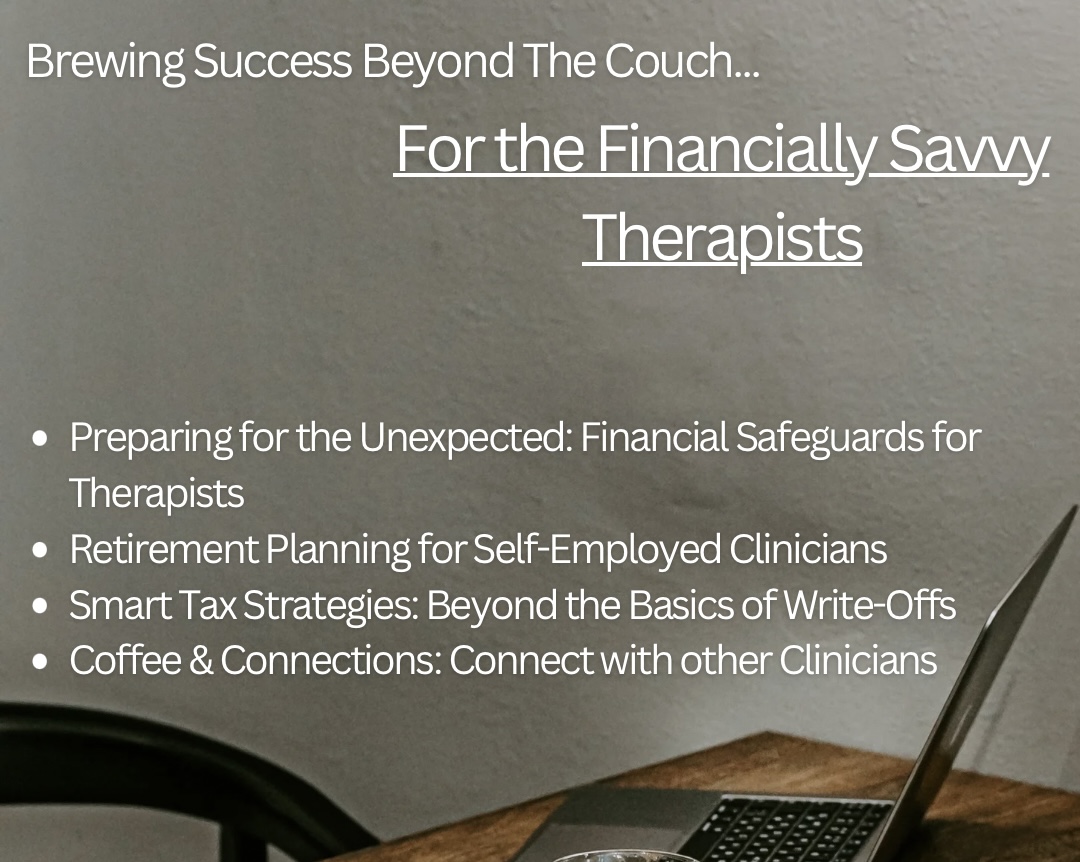
Are there any books, videos or other content that you feel have meaningfully impacted your thinking?
Absolutely. I’ve invested in a lot of resources over the years, but a few stand out because they didn’t just help me build a business – they helped me unlearn beliefs that were holding me back.
One of the most impactful courses I took was Success Triggers by Ramit Sethi. It goes beyond surface-level productivity tips and dives into the psychological “invisible scripts” we carry. Stories about why we think we can’t do something or why we sabotage ourselves right before crossing the finish line. It made me realize that many of the things I was stuck on weren’t strategy issues, they were belief issues. The course also emphasized that time is our most valuable asset. Outsourcing or delegating isn’t laziness; it’s smart energy management. That shifted how I approached both my business and my capacity.
Another resource that changed the game for me was the book Brag by Peggy Klaus. As a child of immigrants, I was taught to stay humble and take up less space. So talking about my work or sharing my wins didn’t feel natural, it felt like I was showing off. Brag reframed that entirely. It helped me see self-advocacy as a leadership skill, not arrogance.
But honestly, no book or course has been as powerful as building a strong, reciprocal network. I rely on a handful of trusted people I can text when I’m stuck on something, whether it’s a financial decision, a marketing tweak, or a tough therapy case. Mentors, peers, and even past clients have helped shape the way I lead. Entrepreneurship doesn’t have to be isolating. It actually works better when it’s relational.
Contact Info:
- Website: https://mokshacollective.com/
- Instagram: https://www.instagram.com/mokshacollective_/?utm_source=ig_web_button_share_sheet
